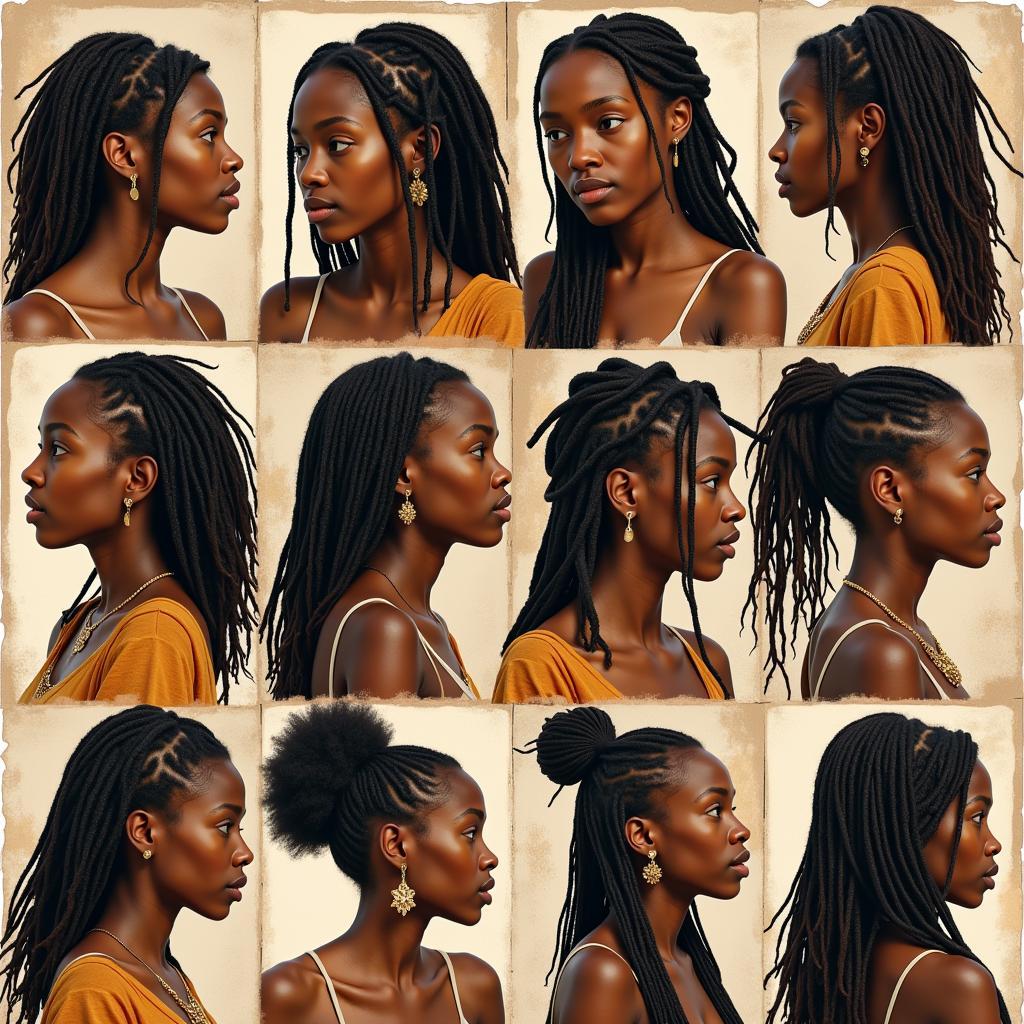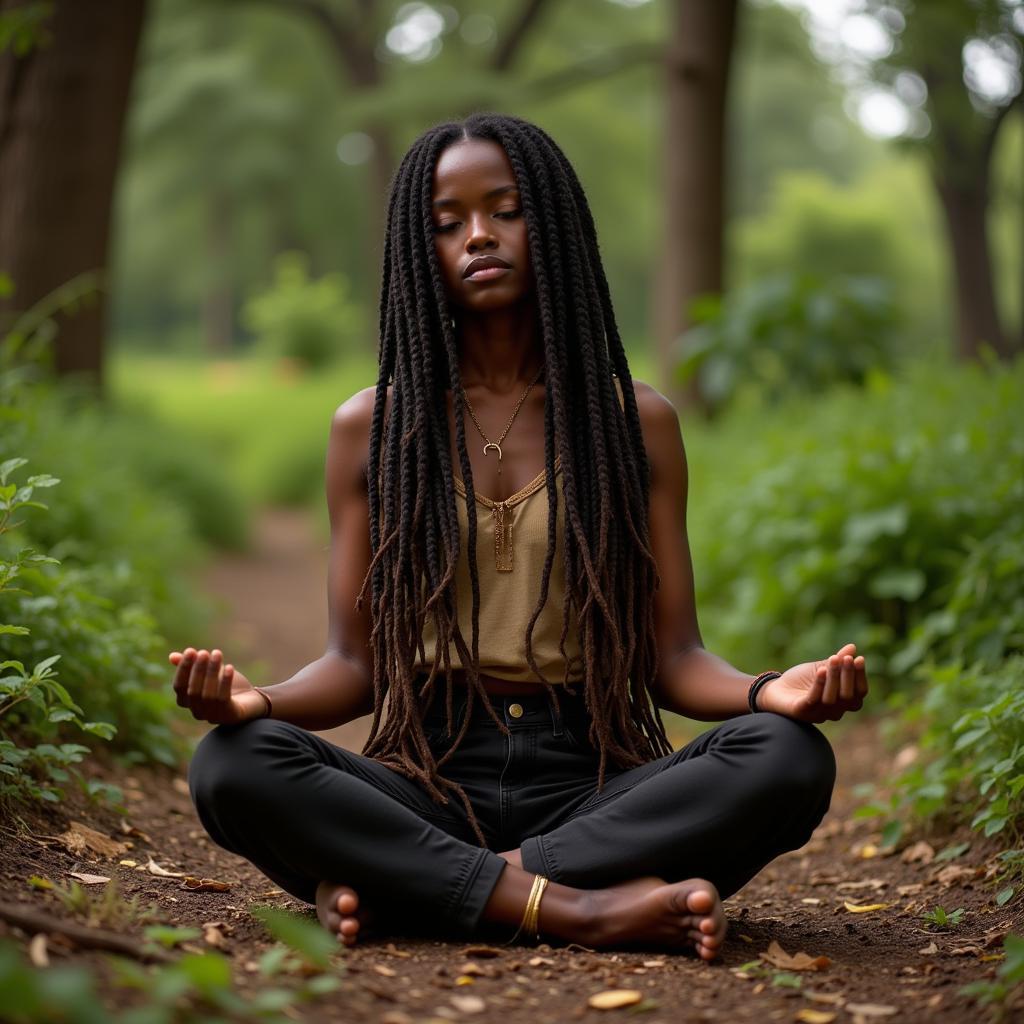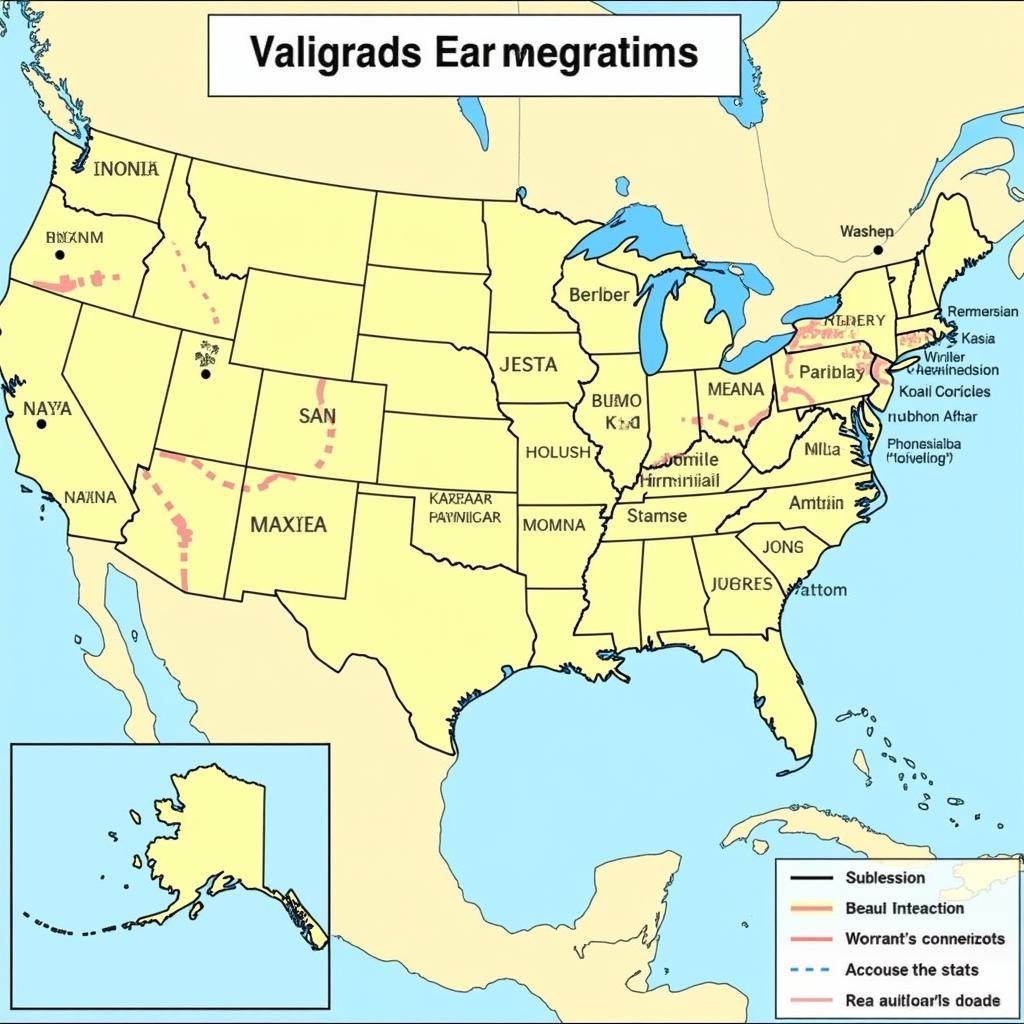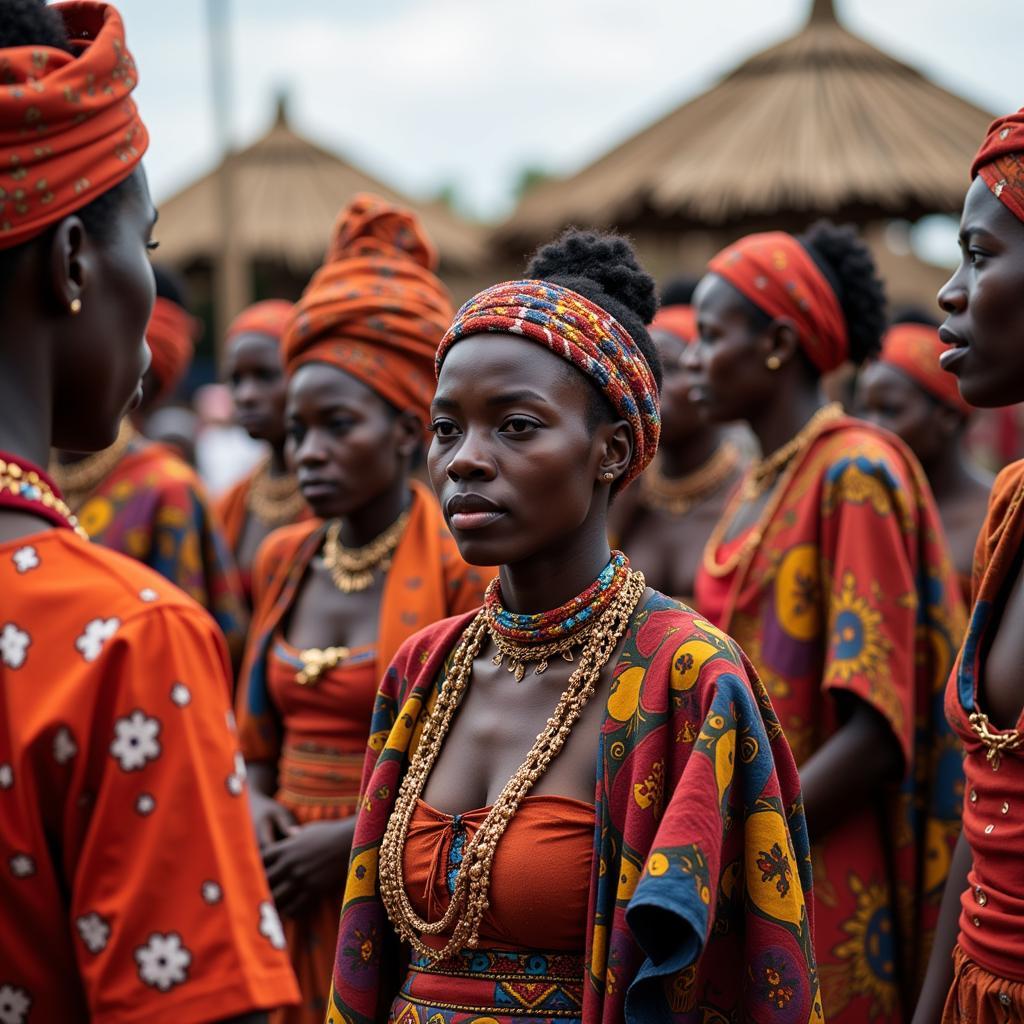A Deep Dive into African Dreads Hairstyles
African dreadlocks, often referred to as dreads, locs, or simply locks, are more than just a hairstyle. They are a powerful statement of identity, spirituality, and connection to African heritage. Steeped in history and tradition, African dreads hold deep cultural significance for people of African descent worldwide.
 Various African Dreads Styles Throughout History
Various African Dreads Styles Throughout History
Unveiling the Rich History of African Dreads
The history of African dreadlocks can be traced back thousands of years, with evidence found in ancient civilizations across Africa. In ancient Egypt, for example, dreadlocks were worn by priests and pharaohs as a symbol of spiritual devotion. Archaeological discoveries have even revealed mummies with well-preserved dreadlocks, testament to their enduring presence in African culture.
Beyond Egypt, dreadlocks were embraced by various ethnic groups throughout the continent, including the Maasai warriors of East Africa, the Himba people of Namibia, and the Yoruba tribe of Nigeria, each attributing their own unique cultural and spiritual meanings to the hairstyle.
 Spiritual Significance of Dreads in Africa
Spiritual Significance of Dreads in Africa
African Dreads: More Than Just a Hairstyle
The significance of African dreadlocks extends far beyond aesthetics. They are often seen as a symbol of:
- Spiritual Awakening: In many African cultures, dreadlocks are believed to represent a spiritual journey, reflecting the wearer’s connection to a higher power.
- Cultural Pride: Wearing dreadlocks can be a powerful expression of pride in African heritage and identity, symbolizing a rejection of Eurocentric beauty standards.
- Social Resistance: Throughout history, African dreadlocks have been associated with resistance and rebellion against oppression, signifying strength, resilience, and non-conformity.
Navigating the Versatility of African Dreads Styles
One of the most captivating aspects of African dreadlocks is their incredible versatility. From intricate braiding techniques to bold color variations, African dreads offer a wide array of styling options for individuals seeking to express their unique personalities and cultural heritage.
Some popular African Dreads Hairstyles include:
- Freeform Dreads: These dreadlocks are allowed to form and grow naturally, without any manipulation or styling products.
- Two-Strand Twists: Hair is sectioned and twisted together to create defined dreadlocks, resulting in a neat and uniform appearance.
- Crochet Dreads: Synthetic or human hair extensions are crocheted into existing hair to achieve thicker, longer dreadlocks.
- Loc Extensions: Pre-made dreadlocks are attached to natural hair using various methods, providing instant length and volume.
Maintaining and Caring for Your African Dreads
Proper maintenance is essential for healthy and thriving African dreadlocks. While dreadlocks require less frequent washing than loose hair, it’s crucial to keep them clean and moisturized to prevent dryness and breakage.
Here are some essential tips for maintaining your African dreadlocks:
- Wash regularly: Aim to wash your dreadlocks every 1-2 weeks with a residue-free shampoo specifically designed for locs.
- Deep condition: Treat your dreadlocks to a deep conditioning treatment every few weeks to keep them hydrated and prevent breakage.
- Moisturize daily: Use a light oil or leave-in conditioner to moisturize your scalp and dreadlocks daily.
- Protect your locs at night: Cover your dreadlocks with a satin scarf or sleep on a satin pillowcase to prevent frizz and breakage while you sleep.
African Dreads: A Timeless Expression of Identity
African dreadlocks are more than just a hairstyle; they are a powerful symbol of cultural pride, spiritual connection, and personal identity. From their ancient origins to their modern-day interpretations, African dreads continue to captivate and inspire people worldwide.
Whether you’re drawn to their historical significance, spiritual symbolism, or simply their undeniable beauty, African dreadlocks offer a unique and empowering way to express yourself and connect with your heritage.


